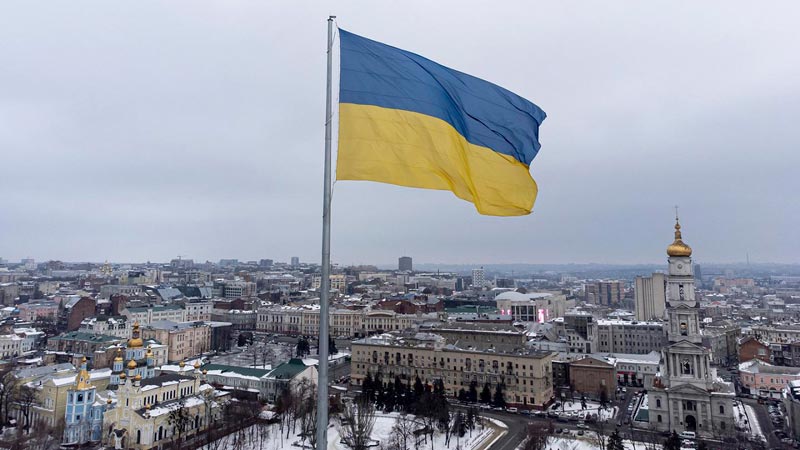
Along with this, the event continued an active promotion of "Great Russian Culture" and "Mysterious Russian Soul" and recruitment of supporters among politicians and public intellectuals. For decades, Moscow has actually had a monopoly right to tell the world about Ukraine: the resources of Ukrainian diaspora and dissidents on the one hand and the Soviet propaganda machine on the other were disadvantage. After the collapse of the USSR, no significant changes occurred.
In the West, there was a spike in interest and a certain fascination with Russia, which in connection with the end of the "Cold War" ceased to be perceived as an enemy. And the young Ukrainian state was not in a hurry (did not have resources, did not understand the importance) to actively present itself to the world.
The formation of the Putin regime in the Russian Federation was accompanied by the clearing of the media field from the opposition media and the creation of a powerful state propaganda machine to work with both internal and foreign audiences. The Kremlin did not spare oil dollars on TV channels, news agencies, online trolls, boards and multi-level agents of influence.
All of them either spread the favorable Kremlin narratives (about the "state revolution" of 2014, "rampant Nazism" in Ukraine, "primordial Russian" Crimea) or "let them go fog" and multiplied the essence (as many versions of the causes to finally confuse people and take away the negative from Moscow. But the system failed. Over the past half of a year, Russia has missed a series of powerful blows and has not been able to accomplish its tasks in the information war.
What the main misses were allowed in the war behind the "heads" and how Ukraine gave it a decent repel: 1. The Kremlin could not convince the world of validity of its claims to Ukraine. Thanks to the US and Britain, the world was warned that Russian dictator Vladimir Putin was preparing an attack. Moscow's efforts to construct Casus Belli and prove the need for "denacification" and "demilitarization" of Ukraine were extremely awkward. Now the civilized world perceives Russia as an aggressor. 2.
The closure of Russian TV channels in the US and the EU, their blocking on YouTube and Facebook weakened the Russian arsenal of information weapons. The blocking of Russian channels in Ukraine back in 2014, as well as the destruction of Media Emperia Viktor Medvedchuk in 2021 limited the impact of Russian propaganda on the Ukrainian audience. 3. The Kremlin failed to demoralize Ukrainians and sow panic at the beginning of a full -scale invasion.
The "custom" about the escape of the Ukrainian government has not achieved the goal. Ukrainian authorities, Ukrainian and foreign journalists promptly informed citizens and the whole world about the situation in Ukraine. 4. The Kremlin was unable to undermine the confidence of Ukrainian citizens in the Ukrainian army, talking about its "total defeat".
The heroic resistance of the military Armed Forces of Ukraine inspired hundreds of thousands of Ukrainians to replenish their ranks and instilled in tens of millions of faith in the victory of Ukraine over Russian invaders. 5. The Ukrainians joined the information resistance. Street actions abroad, bloggers involved in the information front, Twitter-sector, video in support of the military in Tiktok-a far incomplete list of what Ukrainians are doing. 6.
President of Ukraine Volodymyr Zelensky, despite the attempts to discredit it by the Kremlin, became one of the most influential politicians in the world and headed this year's Time-100 readers' readers. Zelensky's speeches before the parliaments of different countries with the appeal to their historical memory increased the sympathy for Ukraine of citizens of these states and the trust of political elites. 7.
Photos and videos taken in Ukraine flew the whole world and hit the first pages of leading publications. 8. The cultural front, represented by Ukrainian artists, demonstrated the possibility of generating actual symbols and meanings. The participants of the legendary British band Pink Floyd gathered for the first time in 28 years to record with Andriy Khlyvnyuk a hymn of Sich Riflemen. Russian "cultural workers" have proven to be incapable of creative, only for gross frontal propaganda. 9.
World leaders, music and cinema stars support Ukraine massively: they make statements, collect funds, volunteer in Ukraine or even give concerts in the Kiev subway. Angelina Jolie, Ben Stiller, Bono and Edz with U2, Live Schreiber visited Ukrainian cities. The Scorpions band changed the text of its hit Wind of Change. Singer Billy Aylish, The Rolling Stones, Imagine Dragons launched Ukrainian flags on stage. In Russia, Stephen Sigal is responsible for "international support" - "I am Russian. " 10.
The Russians failed to hide the traces of their terrible military crimes. Information on crimes in Bucha and Irpen clearly convinced the world community of the need to equip Ukraine. 11. Information war is also a war of symbols and memes. A brief but meaningful dialogue of the defenders of the island Snake with a "Russian warship", a rooster from Borodyanka, a Russian tank on a tugboat in a Ukrainian tractor, the ability of volunteers to raise money even on a space satellite in a record time.
The involvement of Russians in this war is associated with stolen toilets and washing machines. 11. Effective use of the Armed Forces of Ukraine Bayraktar, Himars, M777 and other samples of foreign weapons have become perhaps the best advertising for MIC companies. Russian "Isanders" are now associated with the murder of civilians in Saltovka in Kharkiv. 12.
The success of Ukraine on the information front was recognized by British intelligence, they are devoted to publications in leading Western media. The concept of victory in the information war is quite conditional. After all, the confrontation continues continuously, successes change failures and vice versa.




















Všetky práva vyhradené IN-Ukraine.info - 2022